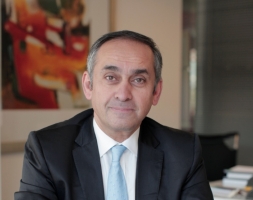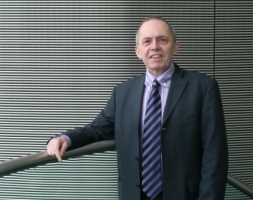New research centre will bridge the gap between academia and health policy

The Centre for Health Policy, which aims to turn high quality research into evidence-based policy innovations, has been launched at Imperial College London.
Imperial College London News Release
Monday 13 December 2010
A new centre that aims to turn high quality research into evidence-based policy innovations has been launched at Imperial College London today. The Centre for Health Policy, part of Imperial’s Institute of Global Health Innovation (IGHI), will bring together academics, clinicians and policymakers to tackle the strategic challenges involved in improving population health and health services around the world.
See also:
Related news stories:
The Centre, a joint venture between the Faculty of Medicine and the Business School, will play a central role in fulfilling the IGHI’s remit to influence health policy. As well as conducting rigorous research to inform innovations in health policy, the Centre will train the next generation of international health policymakers by offering fellowships, research degrees and short courses.
The Centre is co-directed by Professor Lord Ara Darzi, Chair of the IGHI, and Peter Smith, Professor of Health Policy in the Imperial College Business School. Professor Darzi served as Parliamentary Under-Secretary of State in the UK Department of Health from 2007 to 2009. He is also Chair of Global Agenda Council for Health in the World Economic Forum.
“My time as a minister taught me that policy-making and the delivery of healthcare needs to be elevated to a science, with an evidence base comparable to medicine,” Professor Darzi said. "I was also struck by how international experience could be better shared and the need to professionalise health policy-making in part through formal education.

Professor Lord Ara Darzi
“Our new Centre for Health Policy is designed to address these needs. It will carry out the rigorous research that Imperial is known for and work with governments to develop innovative policies for healthcare delivery in developed and developing countries alike.”
Examples of innovative, evidence-based policymaking feature in the Institute for Government’s MINDSPACE report, which was co-authored by Imperial researchers. For instance, research on HIV prevention strategies in Zimbabwe found that women were more likely to use female condoms if they had been given a demonstration by a hairdresser who was trained to give contraception advice.
Professor Smith is currently involved with studies comparing countries’ health systems for the World Health Organisation, the European Commission and the Economic and Social Research Council. Collecting useful data on health system performance and making good use of those data is an important challenge for policymakers, he said.
“One of the major difficulties faced by policymakers is the lack of a coherent framework within which to make policies, lack of evidence on the system-wide impact of pulling particular policy levers, and a lack of translatable evidence from other countries,” Professor Smith said.

Professor Peter Smith
"Through our international links with clinicians, policymakers, scientists and managers, the Centre for Health Policy is perfectly positioned to contribute to evidence-based policy making. Our work will inform health ministers and their advisers around the world about which policies work and which don’t.”
Professor Darzi and his colleagues recently developed a smartphone application, called “Wellnote by Dr Darzi”, that allows users to rate the quality of healthcare services in England.
“New technologies are making it possible to collect extensive data about health system performance, and not just in the West – mobile phone use in developing countries is shooting up as well,” Professor Darzi said. “Innovations like Wellnote can exploit these opportunities to help managers drive up the quality of healthcare.”
The new Centre has a strong team of researchers already in place, and a wide network of collaborators and policy links. The Centre plans to expand from this established base to work with research and policymakers in low, middle and high income settings.
For further information please contact:
Sam Wong
Research Media Officer
Imperial College London
e-mail: sam.wong@imperial.ac.uk
Telephone: +44 (0)207 594 2198
Out of hours duty Press Officer: +44 (0)7803 886 248
Article text (excluding photos or graphics) © Imperial College London.
Photos and graphics subject to third party copyright used with permission or © Imperial College London.
Reporter
Press Office
Communications and Public Affairs
- Email: press.office@imperial.ac.uk
